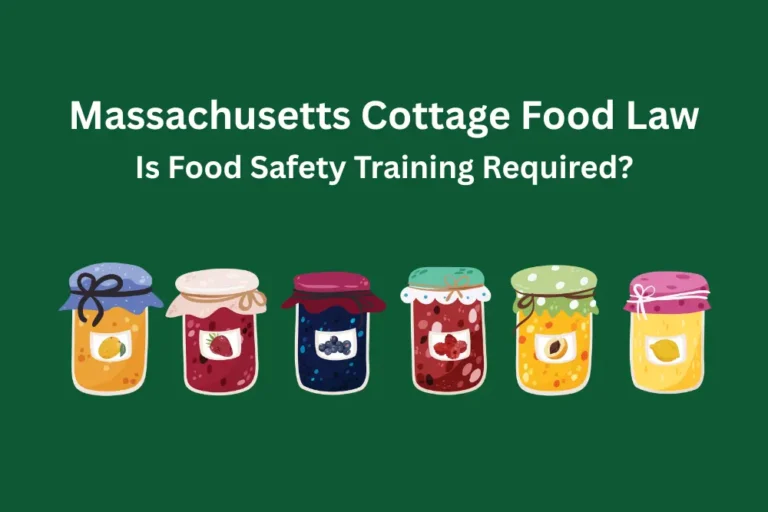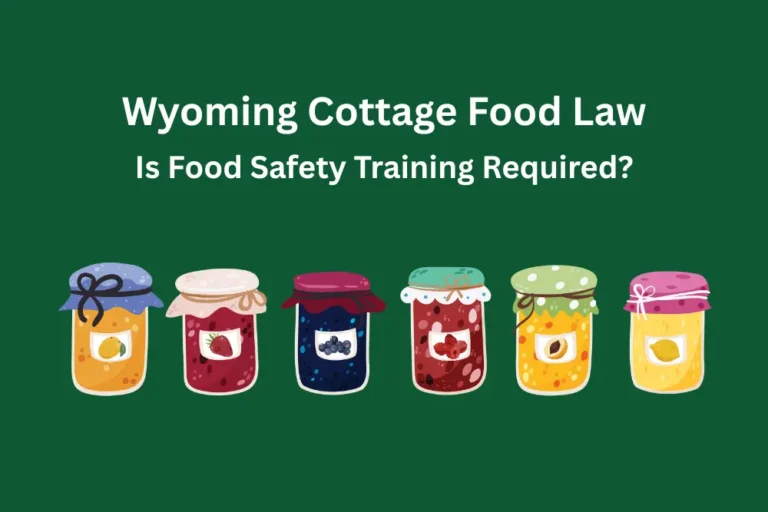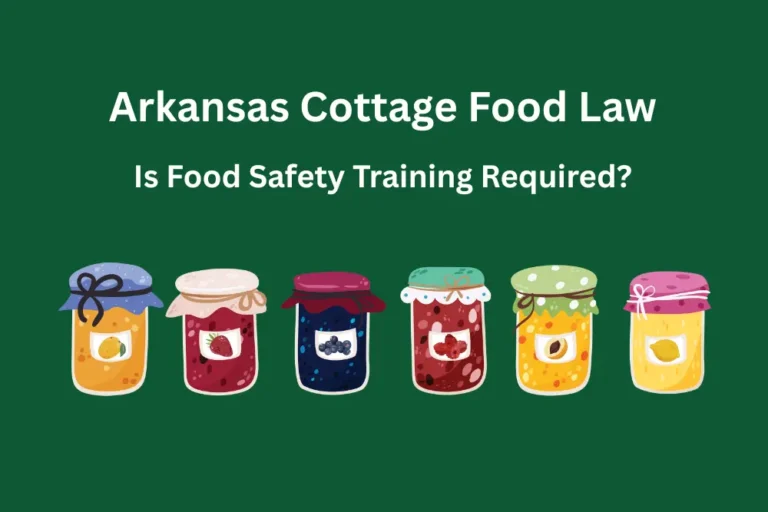Florida Cottage Food Law: Do You Need Food Safety Training?
Article Summary
Selling homemade food in Florida? The cottage food law doesn’t require food handler training, but getting your card can still give your business an edge. This quick video explains why it’s worth it, what you’re allowed to sell, and how to get your food handler card online with FoodSafePal.
Selling homemade food can be a great way to share your products and earn extra income, but every state has its own rules you need to follow.
Each state sets its own cottage food laws that define what you can make, where and how you can sell it, and whether you need food safety training.
This article explains Florida’s cottage food law and whether you need food safety training to sell homemade food.
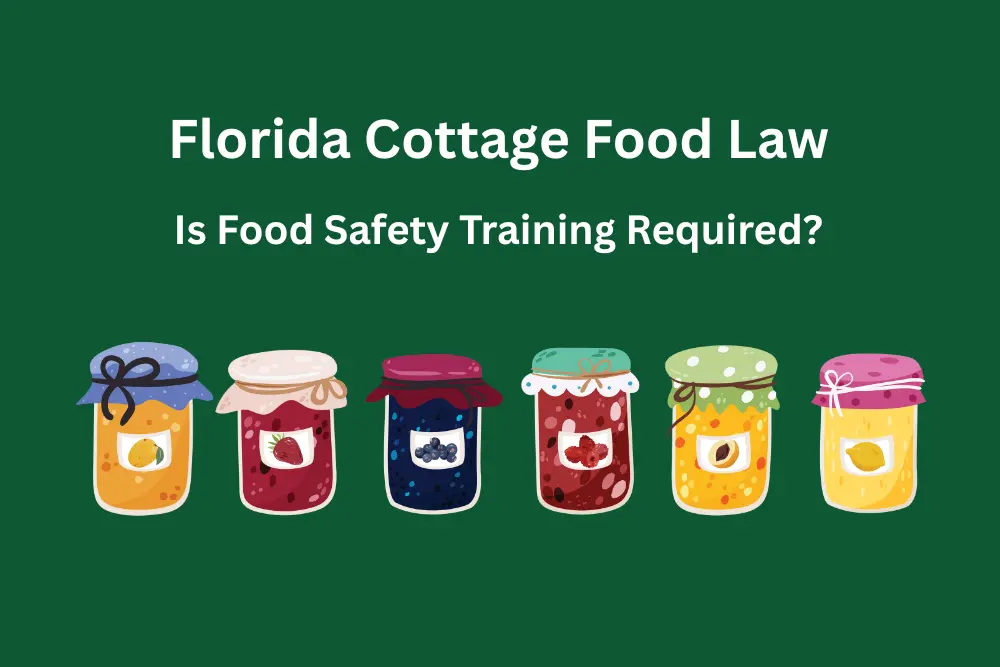
Florida cottage food law
Florida allows you to make and sell many types of homemade, non–time/temperature control for safety (non-TCS) foods directly to people without a license or permit.
Here are examples of allowed foods:
- Honey
- Dried fruits
- Fruit pies
- Dried fruits
- Fruit jams and jellies
- Nuts and nut mixes
- Popcorn and popcorn balls
- Vinegars and flavored vinegars
- Dry herbs, spices, and seasoning blends
- Cereals, granola, trail mixes, and snack mixes
- Candies and confections that don’t require refrigeration
- Baked goods like breads, cookies, cakes, muffins, and pastries that don’t require refrigeration
These products must be shelf-stable and safe to store at room temperature.
You cannot sell foods that require refrigeration or time/temperature control for safety, including dairy products, cheesecakes, meat, poultry, seafood, canned vegetables, soups, low-acid or acidified canned goods (like pickles), and other perishable foods.
If you want to sell any of those items, you must meet the requirements for a regulated food establishment and obtain the necessary permits from the Florida Department of Agriculture and Consumer Services (FDACS).
You can sell directly to people in person, online, or by mail order within the state. You cannot sell wholesale, on consignment, or through restaurants or grocery stores.
Summary
Florida allows you to produce and sell a wide variety of shelf-stable homemade foods directly to people without a license, but you cannot sell perishable or TCS foods or sell your products wholesale.
Do you need food safety training to sell homemade food in Florida?
Florida does not require food safety training or a Florida food handlers card to sell homemade food.
Still, completing a food safety course is a good idea — both for protecting your customers and for building trust in your business. Some farmers markets, event organizers, or even insurance providers may ask for proof of food safety training.
To ensure your training meets recognized standards, choose an ANSI-National Accreditation Board (ANAB)–accredited food handler course.
FoodSafePal’s Food Handler course is ANAB-accredited, 100% online, and takes about 90 minutes to complete. Once you pass, you’ll get immediate access to your food handler card and certificate, plus the option to order a printed version for display at markets or for your records.
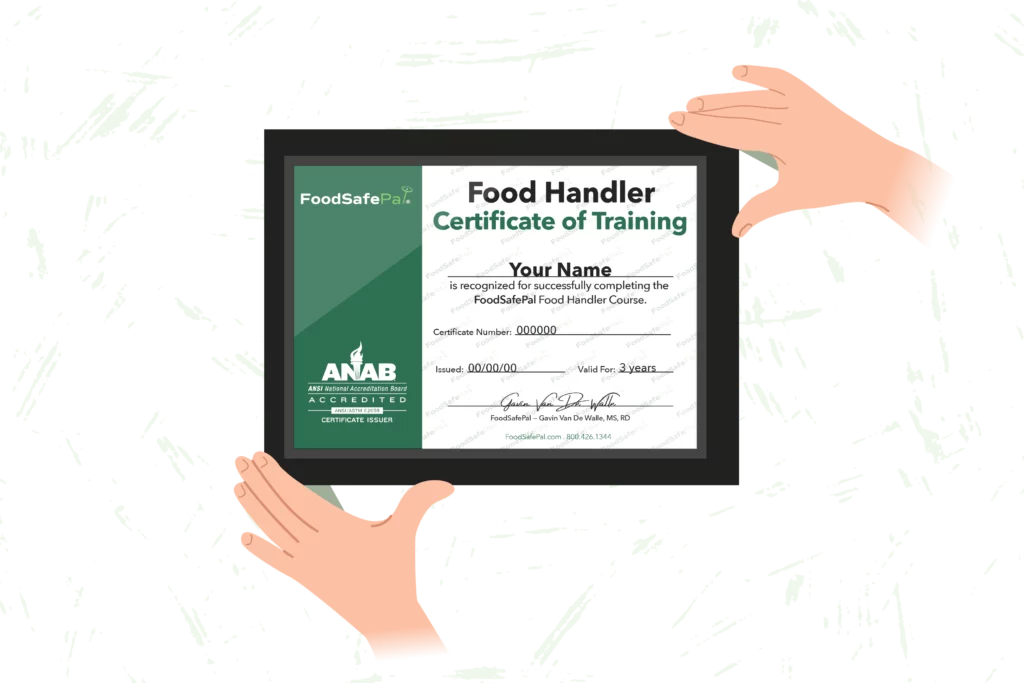
Get Your Florida Food Handlers Card
Instant certificate. 100% online in about 90 minutes.
Summary
Food safety training isn’t required in Florida, but earning a food handler card from an ANAB-accredited provider like FoodSafePal can help you gain credibility, meet venue or insurance requirements, and show customers you take food safety seriously.
Labeling requirements
Florida requires that you properly package and label your cottage food products before sale.
At minimum, your label must include:
- The name and address of your cottage food operation
- The product name
- The ingredients in descending order by weight
- The net weight or volume of the product
- Allergen information
- Nutrition information if any nutritional claim is made
- The following statement in at least 10-point type:
“Made in a cottage food operation that is not subject to Florida’s food safety regulations.”
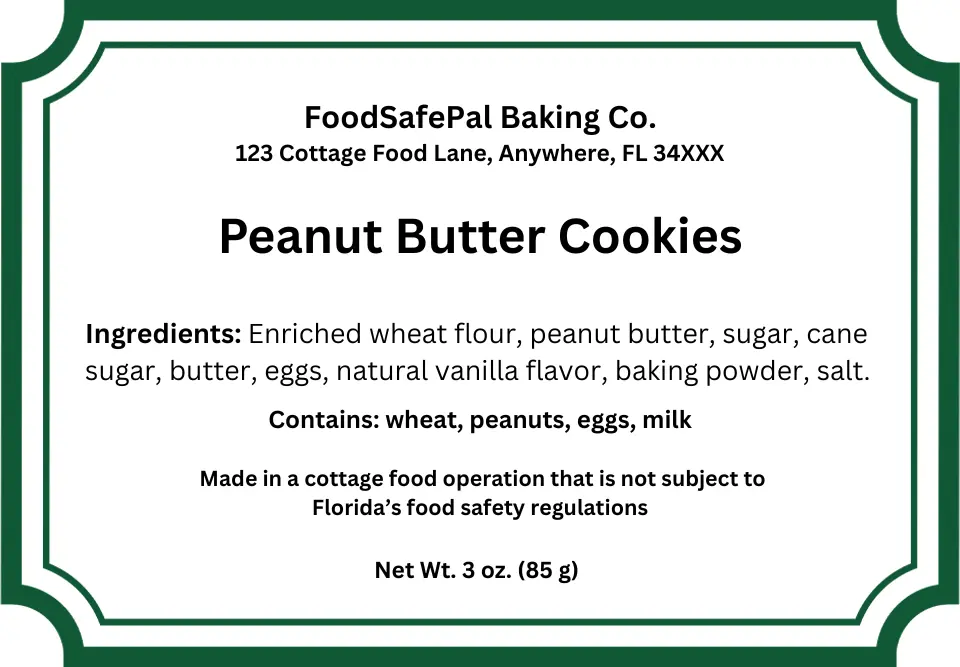
Labels must be applied directly to the product’s packaging.
Summary
Every product you sell must include a label with your name and address, the product name, ingredients, net weight, allergens, and the required statement.
The bottom line
Florida’s cottage food law allows you to make and sell many types of shelf-stable homemade foods directly to consumers without a permit or license.
You cannot sell perishable or TCS foods like dairy, meat, seafood, canned vegetables, or pickled and acidified foods.
Food safety training isn’t required, but taking an ANAB-accredited course from FoodSafePal can strengthen your business, increase buyer confidence, and help you meet market or insurance requirements.
All products must be properly labeled with the required statement and your contact information.

Get Your Florida Food Handlers Card
Instant certificate. 100% online in about 90 minutes.


